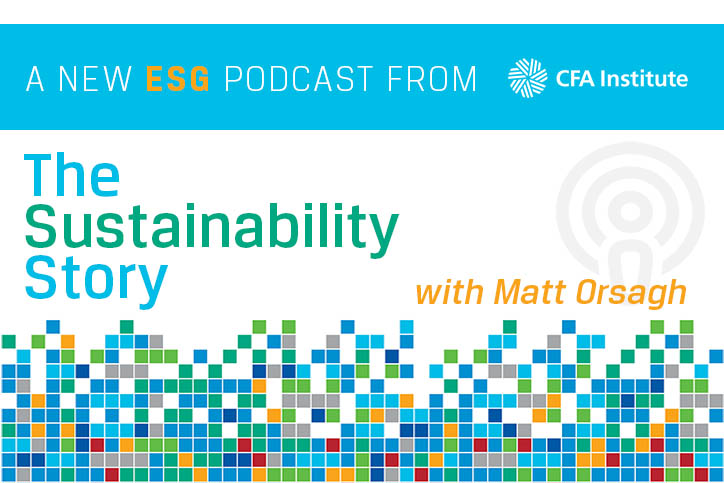A Quantitative Approach to Sustainable Investing
The following post summarizes some key ideas from a recent edition of the CFA Institute podcast The Sustainability Story. CFA Institute Senior Director Matt Orsagh, CFA, CIPM, spoke with Asha Mehta, managing partner and chief investment officer at Global Delta Capital. In this podcast, Mehta discusses the quantitative approach to sustainable investing.
Data are a critical aspect of the sustainability space. And because millions of data points on environmental, social, and governance (ESG) issues are created each day, the challenges lie not in the limitations of the data but on how to treat and make sense of it. This is where quantitative tools can help distinguish signal from noise.
According to Asha Mehta, managing partner and chief investment officer at Global Delta Capital, integrating ESG into quantitative analysis starts with gathering all relevant data points on a company and developing an investment theme to parse it into information to predict returns. Every security is evaluated on ESG considerations and therefore in portfolio construction.
Mehta explains that those who have the skill and resources to evaluate data sets and seek granular inputs have an edge in terms of generating a robust set of statistics that give a “holistic view of companies that is pretty powerful in terms of forecasting returns.”
Mehta also notes that ESG data are predictive of returns in industrial markets and are about twice as predictive of returns in emerging markets. Additionally, ESG risks, which are the main risks to investing in emerging markets, can be mitigated with improved quantitative tools.
“I believe there’s tremendous alpha in ESG data sets,” says Mehta. “I see profound opportunity both on the alpha side as well as the impact side. ESG is driving returns in the emerging market space, as well as creating room for impact,” she adds.

